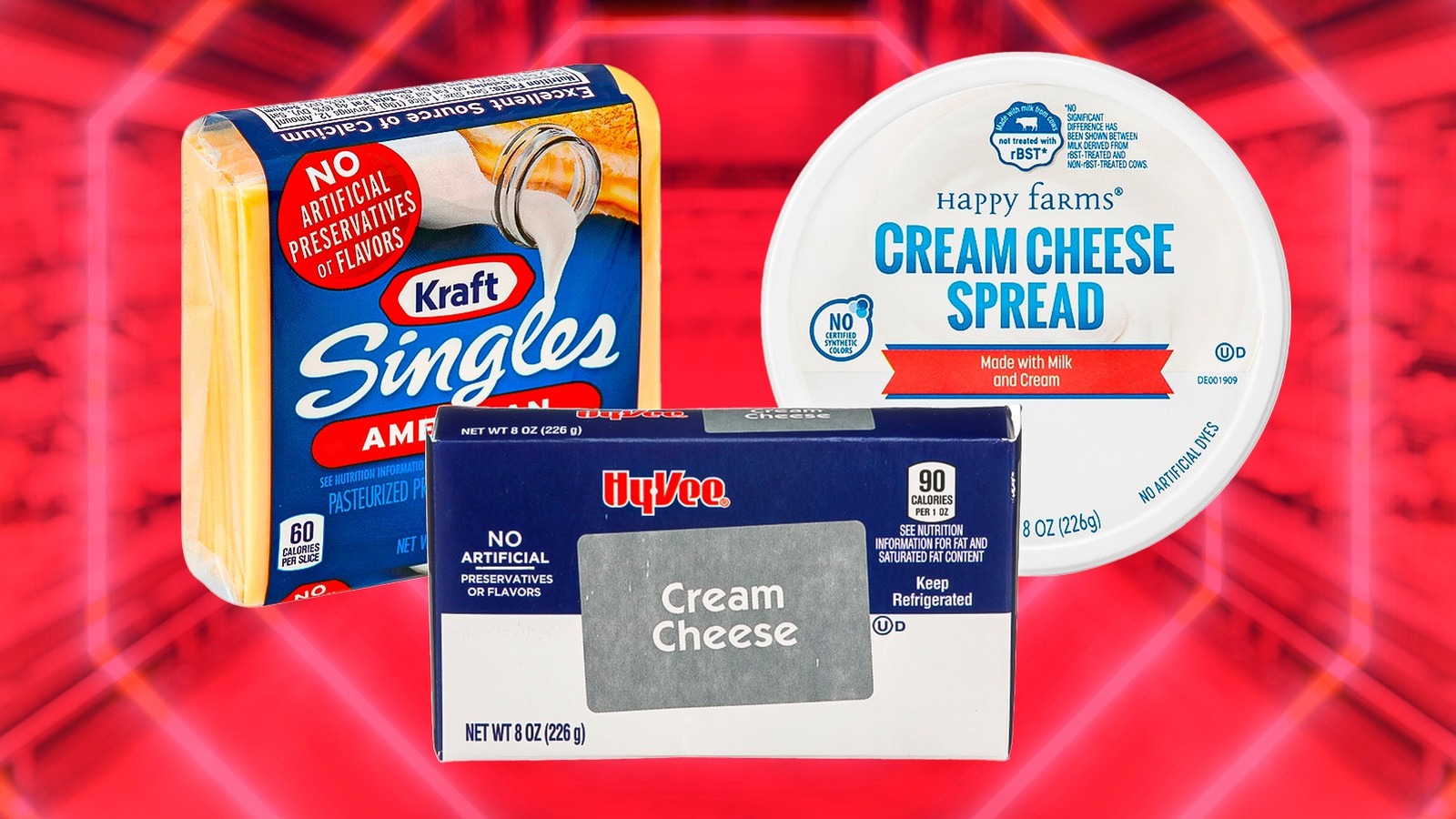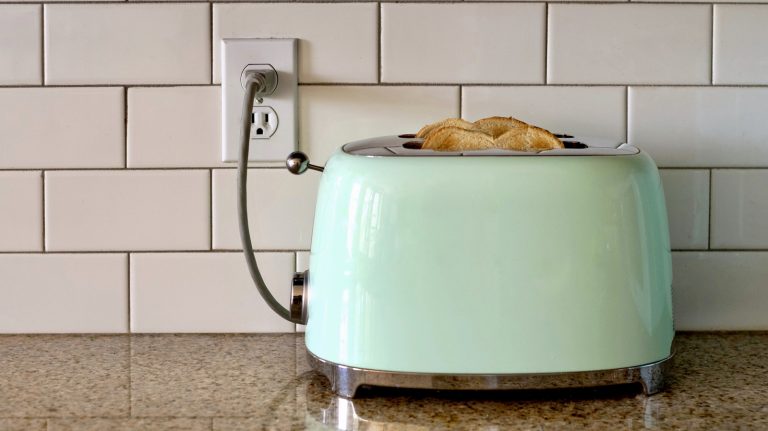We may receive a commission on purchases made from links.
Cheese might just be the MVP of comfort foods. Melt it on a burger, spread it on pizza, pair it with wine, or sneak a slice straight from the fridge — there’s no wrong way to enjoy it. But behind its creamy, tangy, and savory appeal lies an often-overlooked risk: when something goes wrong in production, the consequences can be serious. Over the years, the U.S. has seen a number of major cheese recalls, involving everything from foreign contaminants like plastic fragments to dangerous pathogens. Some recalls were issued out of caution. Others were more dire, linked to widespread illness, hospitalizations, and even deaths. A few made headlines due to the sheer volume of cheese pulled from shelves. Others triggered ripple effects — lawsuits, FDA crackdowns, and lasting damage to once-trusted brands.
These massive recalls that shook up the food industry affected everything from deli-sliced cheddar to imported Italian ricotta. Even beloved staples, like raw milk cheeses and processed singles, were swept up in the chaos. Read on for the most dangerous and impactful cheese recalls in U.S. history and the alarming stories behind them.
Aldi recalled 400 cases of Happy Farms Colby Jack Shredded Cheese due to foreign objects (2025)
In March 2025, cheese lovers in Connecticut, Michigan, Ohio, and Pennsylvania got an unexpected reason to inspect their shredded cheese more closely. Aldi announced a recall of its Happy Farms Colby Jack Shredded Cheese after discovering the potential presence of stainless steel fragments. For fans of the brand, this was a surprising disruption to their go-to cheesy meal planning.
The recall impacted 400 cases, each containing 12 pouches of 12-ounce cheese slices. The FDA labeled it a Class II recall, indicating that the product could cause temporary or medically reversible harm, but serious consequences were unlikely. Consumers were asked to either return or throw away any affected packages. While no injuries or incidents were reported, the possibility of consuming metal fragments was considered serious enough for Aldi to act quickly, pulling the product off shelves.
Heber Valley Artisan Cheese recalled 402 pounds of cheese over E. coli contamination (2024)
In December 2024, Heber Valley Artisan Cheese, known for its handcrafted dairy delights, issued a recall for its Cascade Aged Raw Milk Cheddar. According to the FDA, finished product testing revealed the presence of Shiga toxin-producing E. coli and elevated levels of generic E. coli. The recall involved approximately 402 pounds of cheese, sold in vacuum-sealed 6-pound quarter wheels, with sell-by dates around May 2025. This particular incident was part of a broader safety alert involving multiple products sold through Kroger-owned stores, including Smith’s and contributed to a wave of recalls sweeping across 12 states.
The FDA designated the cheese recall as Class I — its most serious category — reserved for products that could cause serious health consequences or death if consumed. While no illnesses were officially linked, the company offered full refunds for the returned product. The recall was officially terminated on March 21, 2025.
Savencia Cheese USA recalled several soft-ripened cheeses due to listeria contamination (2024)
November 2024 was not a good month for fans of creamy, dreamy Brie. Savencia Cheese, a major player in the soft cheese market, issued a voluntary recall of several soft-ripened cheeses due to potential contamination with Listeria monocytogenes. The recall included popular items such as Aldi’s Emporium Selection Brie, Supreme Oval, La Bonne Vie Brie and Camembert, Market Basket Brie, and Glenview Farms Spreadable Brie. The latter was also used in pre-made sandwiches sold by CIBUS Fresh, Jack & Olive, and Sprig and Sprout.
These cheeses were produced at Savencia’s Lena, Wisconsin facility and distributed regionally across the U.S. The contamination risk arose after routine testing indicated that processing equipment might have been exposed to listeria, although no contaminated finished products were detected. Because soft-ripened cheeses are often eaten without cooking, the presence of listeria poses heightened health risks, especially for pregnant women, young children, the elderly, and immunocompromised individuals. No reports of illness were tied to the recall and customers who purchased the affected products were urged to return or toss them.
Schreiber Foods recalled 830,000 units of cream cheese spreads over salmonella concerns (2024)
In early May 2024, Schreiber Foods issued a massive recall that affected cream cheese fans. The company yanked more than 830,000 units of cream cheese spreads from stores after being alerted by a supplier that whey protein concentrate used in various products could be contaminated with salmonella. The recall posted online by the FDA, featured a dizzying list of brand names, including Dutch Farms, Fareway, Happy Farms, Hy-Vee, Kroger, Our Family, Schnucks, Essential Everyday, Dunkin’, Piggly Wiggly, and of course, Schreiber’s label. The products were distributed across Puerto Rico and 19 states.
Despite the scare, no illnesses were reported. Still, the sheer scale of the recall was alarming. Hy-Vee even had to issue its sub-recall, affecting two dips made by a third-party supplier using the same potentially contaminated ingredient. The single contaminated ingredient impacted a multitude of brands and retailers due to the interconnected nature of the modern food supply chain.
Raw Farm recalled all sizes of its its raw cheddar block cheese and shredded cheese due to E. coli contamination (2024)
Raw Farm, a California-based raw dairy producer, became the focus of a high-profile food safety investigation by the FDA in February 2024. The company issued a voluntary recall of its raw cheddar block cheese and shredded cheese after an E. coli outbreak was linked to 11 illnesses across California, Utah, Colorado, and Texas. Five people were hospitalized, and two developed hemolytic uremic syndrome, a serious kidney-related condition. On March 26, 2024, the CDC officially declared the outbreak over. The recall was widely publicized by the FDA and CDC, urging consumers not to eat, sell, or serve any Raw Farm brand raw cheddar cheese and to return or discard the products.
However, the situation quickly became contentious. Despite the epidemiological evidence linking the cheese to the outbreak, extensive product testing by the FDA, state health agencies, and private labs found no E. coli in any of the sampled products. Just 10 days after initiating the recall, Raw Farm rescinded it, publicly declaring the action “unfounded” and accusing federal agencies of bias and defamation. Raw Farm’s use of raw milk in its cheese has added to the ongoing debate over raw milk cheeses in the U.S., fueling stricter regulations and growing caution around their safety.
Rizo-López Foods recalled recalled its entire line of dairy products over listeria contamination (2024)
Between January and February 2024, California-based Rizo-López Foods voluntarily recalled its entire line of dairy products — including cheeses such as cotija, queso fresco, Monterey Jack, Oaxaca, panela, paneer, and cheddar. The reason? A deadly Listeria monocytogenes outbreak traced back to its products and facility. The toll was sobering: 26 illnesses, 23 hospitalizations, and two deaths.
It all began on January 11, 2024, after Hawaii health officials detected listeria in a sample of aged cotija cheese. The more the investigation uncovered, the more alarming the situation became. By February 6, Rizo-López voluntarily recalled its entire dairy line, including yogurt and sour cream, sold nationwide through major retailers like Trader Joe’s, Costco, Safeway, Whole Foods, and Sprouts. The contamination was connected to a years-long outbreak first detected in 2014, with genetic evidence linking clinical cases over a decade to Rizo-López products.
The recall also prompted the removal of numerous downstream products from other companies that used Rizo-López ingredients, including salad and taco kits. Ultimately, the FDA imposed a permanent injunction.
Kraft Foods recalled 83,800 cases of processed cheese slices due to a packaging defect (2023)
Sometimes, it’s not what’s in the cheese but what’s stuck to it. In September 2023, the FDA published a Kraft Foods recall of 83,800 cases of Kraft Singles American processed cheese slices due to a packaging defect. The issue arose from a temporary malfunction in a wrapping machine, which caused thin strips of plastic film to remain stuck to some slices even after the wrapper was removed. Kraft received six consumer complaints of gagging or choking on the leftover plastic.
The recalled cheese was distributed nationwide, including Aldi locations in 37 of its 38 operating states. While no serious injuries were reported, Kraft didn’t take the matter lightly. It identified a malfunctioning packaging machine, fixed the issue, and tightened quality control checks across all processing lines to prevent a recurrence. The recall generated significant attention due to Kraft Singles’ status as a lunchbox staple.
Great Lakes Cheese Co. recalled over 7.2 million pounds of processed cheese for mislabeling (2023)
In August 2023, Great Lakes Cheese, a leading packager for a variety of store-brand cheeses, found itself in a pickle due to a simple yet significant packaging error. According to an FDA report, the company recalled over 7.2 million pounds of processed cheese after discovering that some products had incorrect refrigeration instructions on the packaging. For perishable foods like cheese, clear storage guidance is crucial to avoid spoilage and health risks.
The recall affected a majority of store-brand cheeses sold under names like Meijer, Giant Eagle, Dutch Farms, Food Lion, Aldi, and even Walmart’s Great Value. Products involved in the Class III cheese recall were distributed across 32 states. Luckily, most retailers stored the products properly, so the public health risk stayed low.
Still, with over 7 million pounds pulled from shelves, it was one of the largest cheese recalls in U.S. history, highlighting how even labeling mishaps can create major logistical challenges for producers and retailers. For cheese manufacturers, it was a lesson in the importance of precise labeling and quality control.
Old Europe Cheese recalled its Brie and Camembert cheese products due to listeria contamination (2022)
Old Europe Cheese Inc. recalled its Brie and Camembert cheese due to potential Listeria monocytogenes contamination in September 2022. Sold under a variety of brands, including Black Bear and Joan of Arc, the affected products were distributed nationwide, sparking concern among soft cheese lovers. The recall expanded rapidly. On October 3, Albertsons Companies announced a related recall of in-store prepared items, like ReadyMeals, made with the contaminated cheese. Two days later, baked Brie products were also added to the list. CDC reported six people across six states fell ill, with five requiring hospitalization.
Old Europe Cheese voluntarily paused production of all soft cheeses to allow for an investigation. The FDA later issued a warning letter citing violations of good manufacturing practices at the company’s Michigan facility, pointing to long-standing sanitation issues as a possible root cause. While the number of illnesses was relatively small, listeria remains a serious risk in ready-to-eat foods especially soft cheeses like Brie and Camembert.
Great Lakes Cheese Co. recalled 400,000 pounds of its processed American cheese products over foreign objects (2019)
Prior to the 2023 recall, Great Lakes Cheese Co. had conducted a substantial recall in October 2019. The FDA reported the company voluntarily recalled roughly 400,000 pounds of its processed American cheese products due to the potential presence of metal fragments. Distributed to major retailers including Wegmans, ShopRite, Price Chopper, and Publix, the affected products were shipped across multiple states. While no injuries or illnesses were reported, the risk of finding metal in a cheese slice prompted swift removal of the products from shelves. The recall was classified as Class III, indicating a lower health risk but still representing one of the largest cheese withdrawals in the country at the time.
Great Lakes Cheese Co. acted promptly, collaborating with the FDA to remove the product before it posed a risk to consumers. This recall didn’t get as much media attention as some others, but it’s part of a pattern for Great Lakes Cheese Co. They had the 2023 recall over packaging errors and in early 2025, stainless steel fragments turned up in Aldi’s Colby Jack cheese. Altogether, these recalls make them one of the biggest players in cheese safety issues over the past decade.
Vulto Creamery recalled four of its soft wash-rind raw milk cheeses due to listeria contamination (2017)
On March 7, 2017, Vulto Creamery recalled four of its soft wash-rind raw milk cheeses: Ouleout, Miranda, Heinennellie, and Willowemoc due to a deadly Listeria monocytogenes outbreak. On March 10, the recall expanded to include Andes, Blue Blais, Hamden, and Walton Umber. The cheese products, all sold in wheel form, were distributed across the country, but the majority were available at retail stores in the Northeast and Mid-Atlantic regions, California, Chicago, Portland, and Washington, D.C.
The public health impact was severe. From September 2016 to March 2017, the CDC reported eight people across New York, Connecticut, Florida, and Vermont were hospitalized with listeriosis, and two tragically died, including one newborn. Between July 2014 and February 2017, Vulto Creamery faced repeated sanitation lapses, with 54 of 198 FDA swabs testing positive for listeria. After the March 2017 outbreak was traced to the facility, all soft and semi-soft cheeses were recalled and destroyed by April 5, 2017. On July 9, 2024, Johannes Vulto was sentenced to three years of probation, fined $100,000, and ordered to perform 240 hours of community service. Vulto Creamery LLC, which has since ceased operations, received one year of probation.
Deutsch Kase Haus recalled millions of pounds of cheese products due to listeria contamination (2017)
In early 2017, a listeria scare at Deutsch Kase Haus led to one of the largest cheese recalls in recent years, not because of the number of illnesses (none were reported), but because of how deeply the contamination affected the wider supply chain. After the Indiana-based facility found potential Listeria monocytogenes in its Longhorn Colby cheese during routine testing, it voluntarily recalled over 4.1 million pounds of product. But that was just the beginning.
Major brands like Sargento, Meijer, and Sara Lee quickly followed suit, issuing recalls because they sourced cheese from Deutsch Kase Haus. Dutch Valley Food Distributors’ Schlabach branch also recalled 22 cheese products and gift boxes. Biery Cheese Co. recalled over 430,000 pounds of Longhorn Colby cheese. Sargento’s recall was especially significant, involving roughly 1.2 million pounds of cheese including Colby, Colby Jack, Muenster, and Pepper Jack, leading the company to cut ties with Deutsch Kase Haus (via CNN).
Karoun Dairies recalled 15 varieties of soft cheese due to listeria contamination (2015)
Karoun Dairies recalled 15 varieties of soft cheese back in September 2015 after an investigation by the CDC and the FDA linked its products to a multistate Listeria monocytogenes outbreak that had spanned five years. The recall extended beyond Karoun’s own brand, including Arz, Gopi, Queso Del Valle, Central Valley Creamery, and Yanni. These cheeses, produced by Central Valley Cheese, Inc. for Karoun, were distributed nationwide and sold in a variety of packaging, from vacuum packs to jars and pails, with weights ranging from 5 ounces to 30 pounds.
The outbreak resulted in 30 reported illnesses across 10 states, with 28 hospitalizations, six pregnancy-related cases (including one fetal loss), and three deaths in California and Ohio. What made this recall particularly alarming was the stealthy nature of listeria, which can persist undetected in processing environments and has a long incubation period that often delays outbreak recognition.
Forever Cheese recalled all lots of Frescolina Marte brand Ricotta Salata products over listeria contamination (2012)
In September 2012, Forever Cheese, a New York-based importer, faced a significant public health crisis when its Ricotta Salata Frescolina, imported from Italy, was linked to a multistate Listeria monocytogenes outbreak. The outbreak affected 22 individuals across 13 states and the District of Columbia, resulting in 20 hospitalizations and four deaths, with listeriosis contributing to at least one of the fatalities.
The initial recall, issued on September 10, 2012, covered a single lot of the cheese. However, as investigations progressed, the recall was expanded on September 14 to include all lots and production codes of the Frescolina Marte brand Ricotta Salata. The cheese was distributed to supermarkets, restaurants, and wholesale distributors in multiple states between September 1, 2011, and August 31, 2012.
The cheese was contaminated with Listeria monocytogenes during production or handling in Italy before importation. Market withdrawal of all cheese by the Italian cheese exporter, Fattorie Chiarappa was requested by the FDA.
Peregrina Cheese recalled its Queso Fresco Fresh Cheese due to possible listeria contamination (2003)
Peregrina Cheese Corp. became the center of a serious food safety scare in March 2003. The company issued a voluntary recall of its Queso Fresco Fresh Cheese after routine testing by New York state officials detected Listeria monocytogenes in the product. The recall targeted 14-ounce trays of Queso Fresco Fresh Cheese. Distributed throughout New York and New Jersey, the health threat caused the company to pull the cheese from shelves and alert consumers to discard or return it immediately.
The FDA issued warning letters to Peregrina Cheese Corp. and other related firms for insanitary conditions, including rodent infestations and poor sanitation practices. It also took enforcement actions to prevent further distribution of contaminated products. The 2003 recall would later prove to be a warning. Years of regulatory issues followed, and in 2009, the U.S. Department of Justice sued Peregrina for repeated food safety violations.
Jalisco Mexican Products recalled its soft cheeses over listeria contamination (1985)
In June 1985, one of the deadliest foodborne illness outbreaks in U.S. history was traced to queso fresco and other soft cheeses made by Jalisco Mexican, prompting a recall on June 13. The cheese, contaminated with Listeria monocytogenes, were either unpasteurized or improperly pasteurized and distributed primarily in California and 16 other states. According to the New England Journal of Medicine, 142 cases of listeriosis were reported in Los Angeles and Orange Counties between January and August 1985. Pregnant women and their babies accounted for 93 of the cases (65.5%), while 49 cases occurred in non-pregnant adults — 98% of whom had underlying health conditions.
The outbreak led to 28 deaths, including 10 newborns and 18 adults, as well as 20 fetal losses. Jalisco’s president Gary McPherson was sentenced to 30 days in L.A. County jail, while the company’s cheese maker, Jose Luis Medina, received a 60-day jail sentence. Together, they were fined a total of approximately $48,000. Jalisco Mexican Products shut down permanently.





